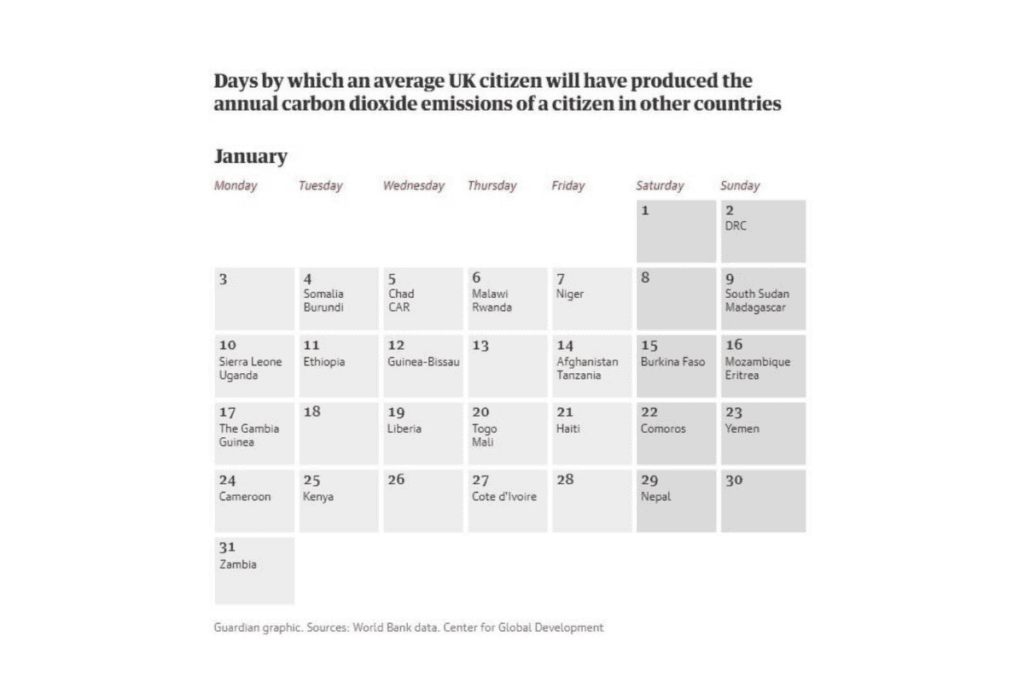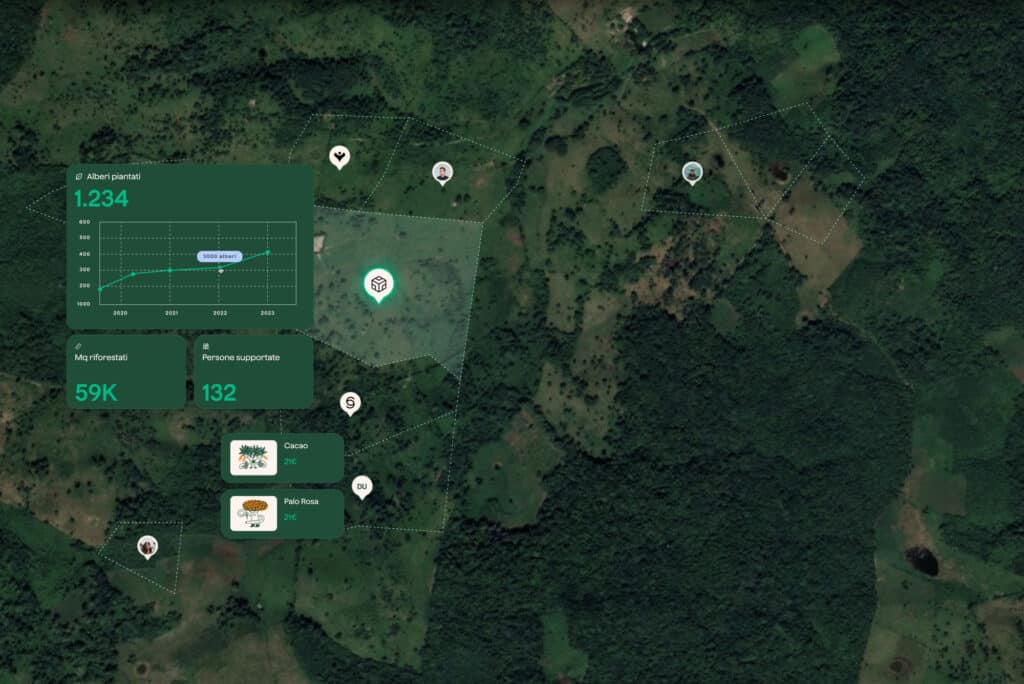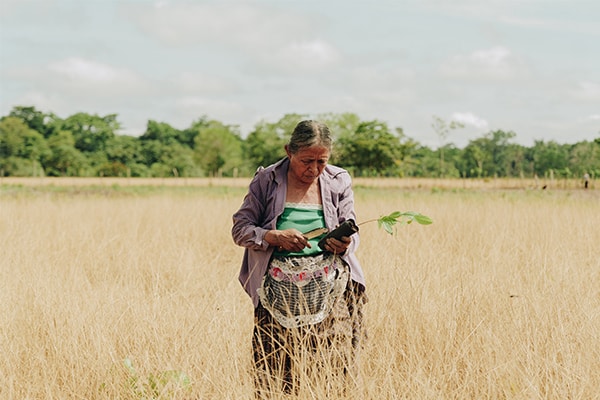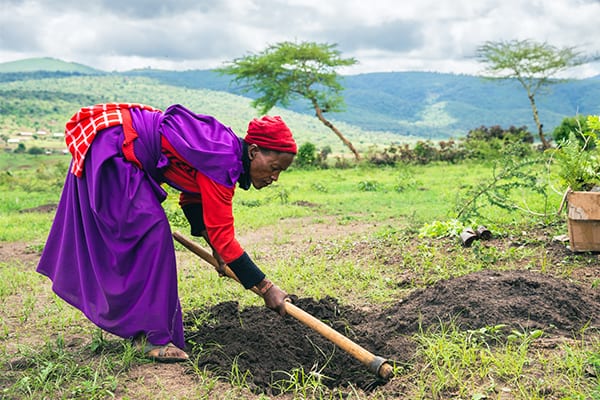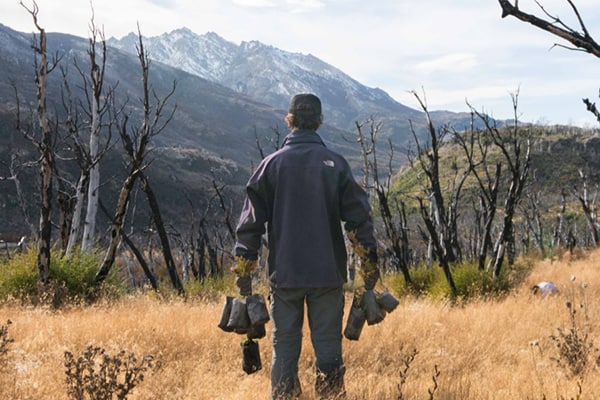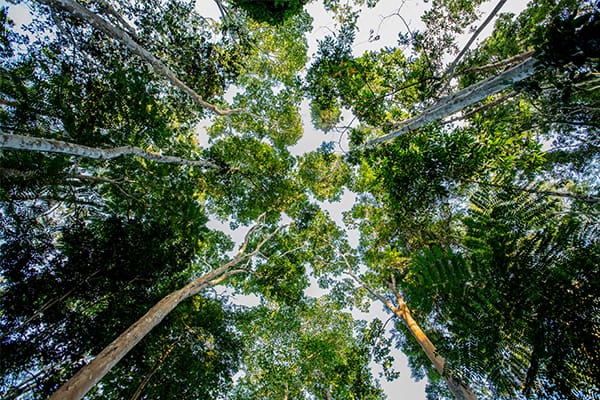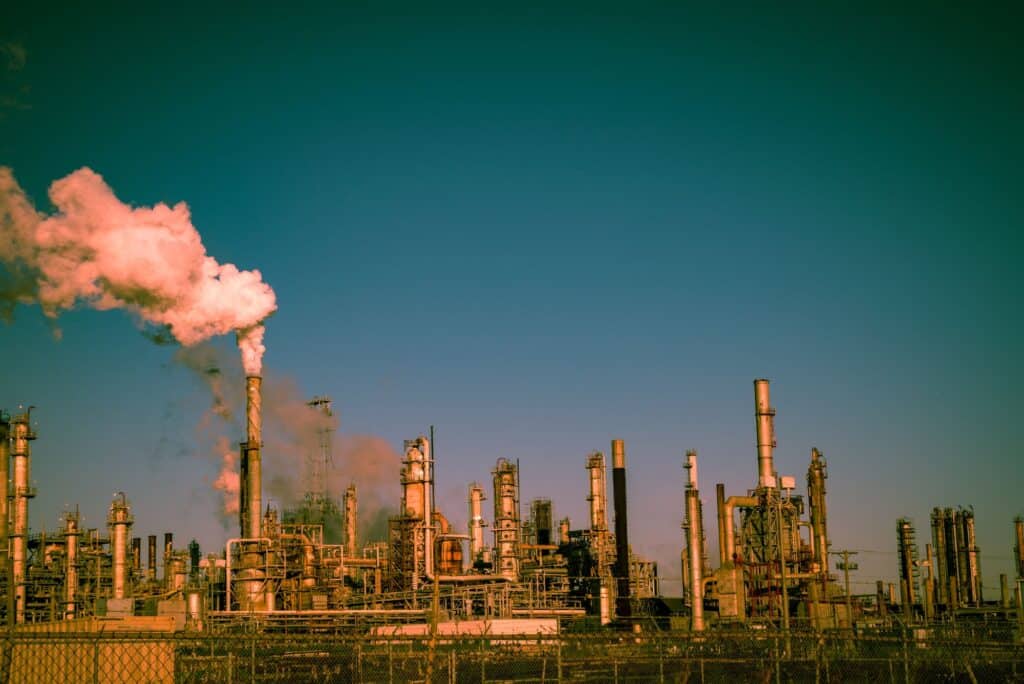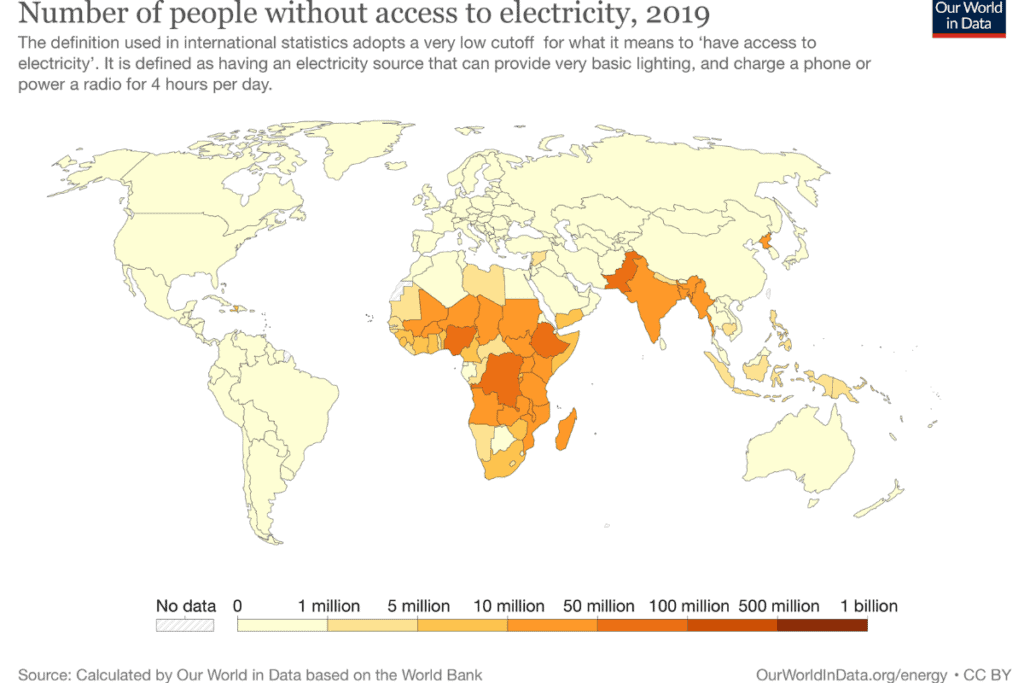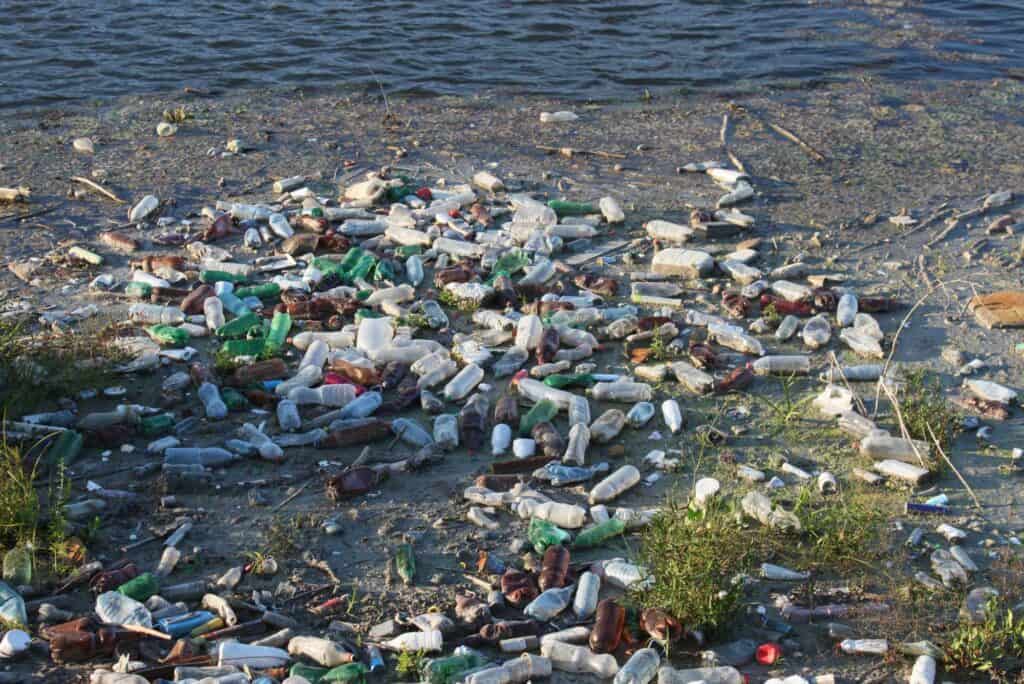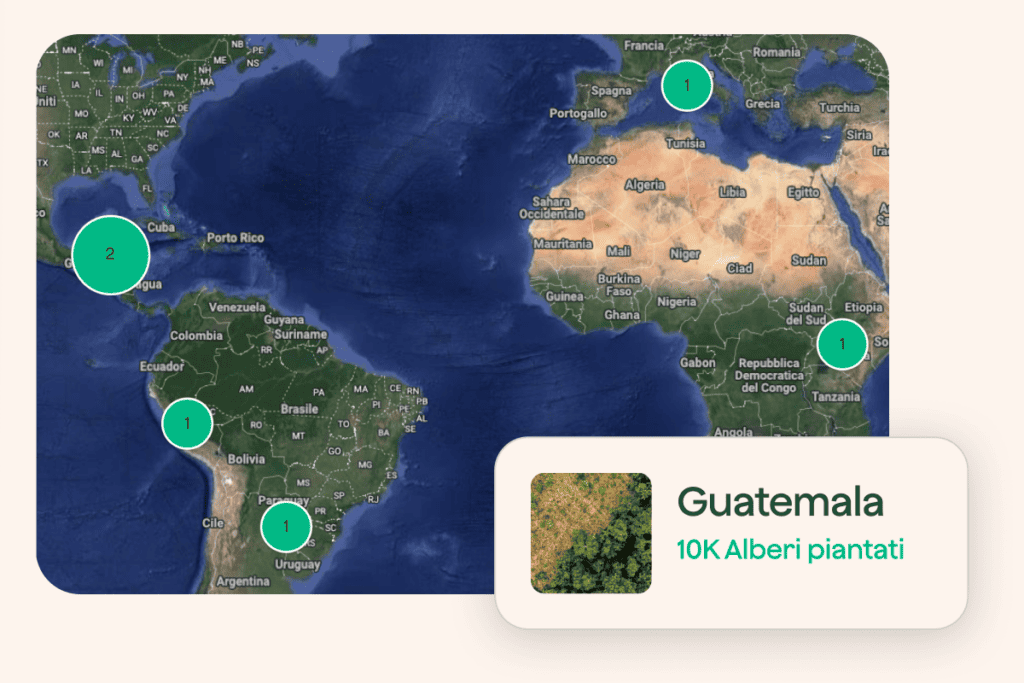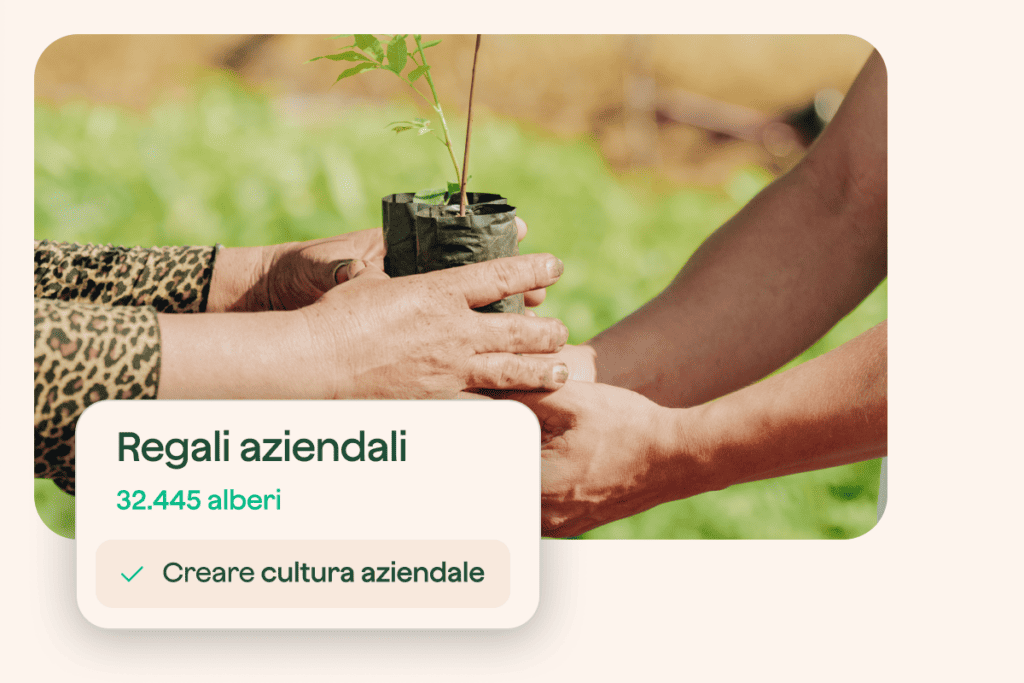Emissions, 200 to 1 for us
According to a new analysis by the Center for Global Development (CGD), in the first two days of January alone, the average Briton was already responsible for more carbon dioxide emissions than a person in the Democratic Republic of Congo will produce in an entire year.
The study, which highlights the ‘vast energy inequality’ between rich and poor countries, revealed that each Briton produces 200 times the emissions of the average Congolese, while an American produces 585 times as much. In total, the UK’s average January emissions were higher than the annual emissions of around 30 low- and middle-income countries, outstripping roughly one country per day.
The same can be said for Italy and European countries in general, our living standards are the same after all. In 2018 the UK and Italy emitted about 5.4 tonnes of CO2 emissions per capita; 15.24 the US; 7.7 Germany; 7.4 China; 4.6 France; 1.8 India; 0.2 Tanzania; 0.03 Congo.
